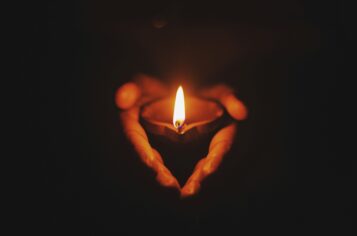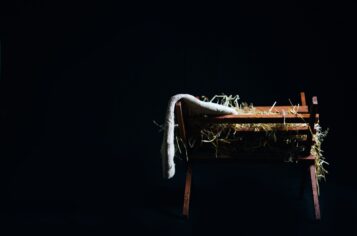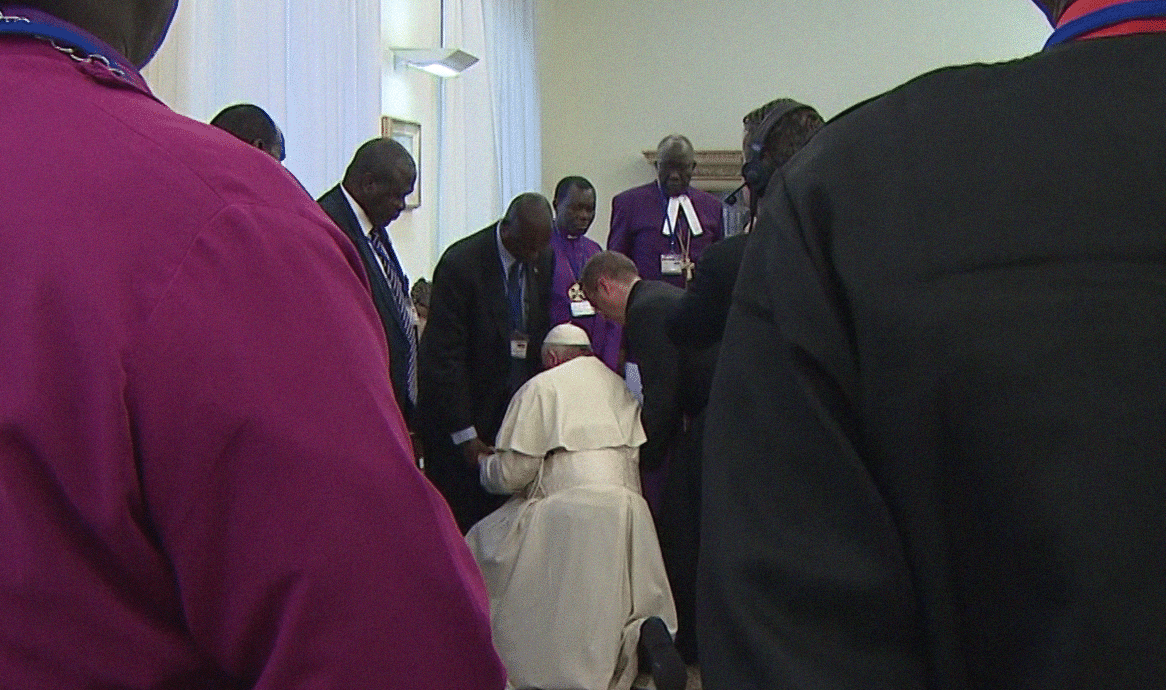
Jonty Herman was a videographer and filmmaker at the 2019 Vatican Retreat Pope Francis hosted for South Sudan’s leaders. He’s written a reflection on witnessing the moment Pope Francis knelt before the leaders, kissing their feet.
A lot of celebrities have gone from this world, leaving a memorable kiss – Marilyn Monroe and Tony Curtis in Some Like it Hot, John Lennon and Yoko Ono on the cover of Rolling Stone magazine, Prince and Apollonia in Purple Rain, Judas and Jesus. Pope Francis’ kiss is becoming one of the iconic images by which we’ll remember the special Pontiff.
Planted on the shoe of a President followed by another on the shoe of his rival, the First Vice President, and then two other politicians, the Pontiff got on all fours to the disbelief of the room. “I ask you as a brother: stay in peace. I am asking you with my heart,” he said.
This was a spiritual retreat for the warring leaders of South Sudan, their colleagues and a small group of ecumenical clergy at the Vatican in 2019. The joint brainchild of the heads of the Catholic, Anglican, and Presbyterian churches, it was designed to help heal the personal rifts that had led to civil war six years prior. That civil war had led to the loss of 400,000 lives and even the atheists in the room concurred that it was some kind of miracle, to have brought these leaders together again after so much bloodshed.
Awkwardness
It took me a few minutes to catch up with what exactly was going on. Actually, I’m still catching up. But since Pope Francis’s passing, I feel like I’ve been getting a little closer.
It was totally off script; it should have been totally awkward, but somehow, it wasn’t. Surprising, yes. Vulnerable, very. The ease of the moment is something I’ve been processing to this day. What made this leader on his haunches, in the middle of the room, profound rather than awkward?
I should know something about well-intended awkward moments, having misread a room a few times: bringing a huge bunch of flowers to a first date (apparently it’s a bit much); offering to pay for an old lady’s shopping in a flush of generosity, only to end up being accused by the checkout attendant of acting suspiciously; offering to pray for someone and then having them walk off once I closed my eyes…
Unlike me, Pope Francis had an exquisite ability to read a room, on a whole other level.
Time slowed down to a near halt, as the Pontiff put down his papers and made his way over to the standing cluster of politicians. We each ran through combinations of scenarios in our minds, trying to anticipate what was about to happen. Had the session ended? Has the Pope become tired and decided to leave early? Was he going to whisper in the ear of the President to round off the homily?
He clutched the President’s hand in a firm grip and, with his other hand in the translator’s, concertinaed to the floor, almost pulling the two men down with him. Salva Kiir stood like a bent reed with the Pope in a ball at his feet, hands flinching hesitantly, caught between a reciprocal bow, the temptation to intervene and the usual “big man” stance. The power balances in the room were flipped, confused, broken.
A short, quiet, terrible gasp broke through the silence. The Fourth Vice President, Madam Rebecca, let out a guttural yelp as she watched. The Archbishop of Canterbury’s mouth was open aghast. I looked at my friend and colleague, Ailsa, and saw a tear rolling down her cheek as she whispered, ‘This is extraordinary.’ Tears welled up in my eyes too. It was a holy moment.
Images of the Pope’s kiss did the rounds – The Mail, The Mirror, Le Monde – but it’s impossible to capture the kissed shoes, the feet that wore them, where they had been. It’s impossible to truly show the kneeling Pope, knees cracking with arthritis, heart thumping to lift his frame up and down, over and over. The word ‘brother,’ as the holy man addressed the strongmen.
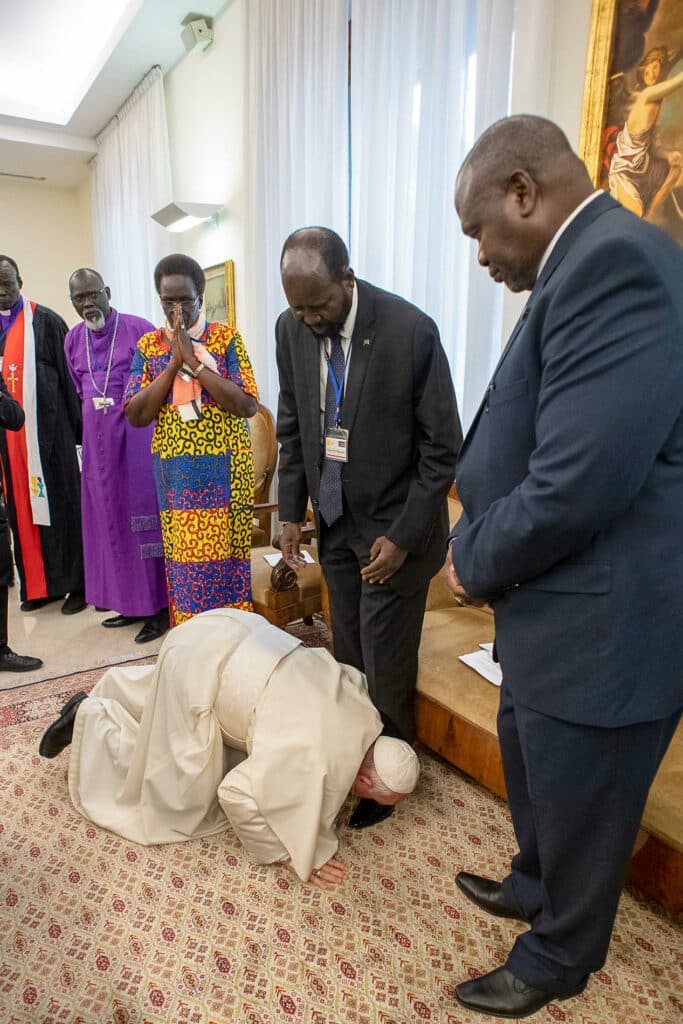
Holiness
There’s something of juxtapositions that made this moment holy. I don’t know if any other leader in this world could have pulled off an act like this with any semblance of integrity or significance. There’s something about the neat precision of the religious city-state and its neat inhabitants; something about the perfectly square marble inner walls which emphasise the bopping, jaunty shuffle of the octogenarian holy man making his way across the floor. There’s something about the warm rosy face and cheeky smile, peering through all-white robes, pressed and pristine.
There’s something about Bishop Jorge’s life of asceticism, shunning wealth to be with the poor, before he became Pope Francis and took up residence in the halls of power.
There’s something about a man with endowed with the highest spiritual authority bowing low before the four stunned leaders that made it… holy.
It was holy, but also outrageous. Here was a public figure calling these men – who between them bear a fair share of the responsibility for the slaughter of their citizens – ‘brother’. This was a kiss making blessed shoes spattered in innocent blood.
I imagine some in South Sudan would have seen the kiss as a betrayal of the people, morally absolving the leaders – but the same lips that caressed the polished leather also formed strong, pointed words, as the Pope addressed the leaders both during the Vatican retreat and on his visit to South Sudan four years later:
“In the name of God… now is the time to say, ‘No more of this.’ We say no more, without ‘ifs’ or ‘buts.’ No more bloodshed, no more conflicts, no more violence and mutual recriminations about who is responsible for it, no more leaving your people a thirst for peace.”
There’s something about authority that’s not afraid to call a spade a spade… and is fully aware of that spade’s potential to be used both as a weapon and a tool.
“Future generations will either venerate your names or cancel their memory, based on what you now do.”
By calling them ‘brother’ he was calling them higher.
Betrayal
Both sides – Kiir’s government and Machar’s Sudan People’s Liberation Movement-in-Opposition (SPLM-IO) – committed widespread atrocities in the civil war, including mass killings, ethnically targeted violence, sexual violence, and the use of child soldiers. According to the African Union Commission of Inquiry (2014), the violence was “committed in a systematic manner” and “well-organized, with clear command structures.” The Commission concluded that “the leadership appears to have either directed or been informed of these actions and failed to stop them.” The UN Commission on Human Rights in South Sudan similarly found in 2020 that “violations were committed as part of State policy,” and that “senior officials, including at the highest levels, were involved in planning or knew of the crimes.”
As the Pope lay in his hospital bed in Rome in the final weeks of his life, the President of South Sudan was placing his First Vice President under house arrest. The shadow of a brooding war has been cast over the people once again.
There’s something about the Pope’s kiss that calls back to Jesus washing the disciples’ feet on the night that he was betrayed. In doing so, the teacher and Lord put himself in the place of a servant, and in doing that, he reminded the disciples of their true identity: as sons of God.
Though he washed Judas’ feet, Judas betrayed him that very night. But did that prove Jesus wrong about Judas? If the South Sudanese leaders betray the Pope and return to war, will that prove him wrong about them?
Jesus, in his ultimate moment of humility on the cross, exposed the brutality of the Roman regime by bearing their shameful violence upon his innocent body. If the South Sudanese leaders return to war, they will only broadcast their own shame and weakness around the world.
The world is now watching to see what path the leaders of South Sudan take. But even if they betray the kiss, betray their citizens, and betray their own identity as sons of God, the Pope’s kiss will be remembered as a powerful, enduring sign of grace to which they, and all of us, are called.
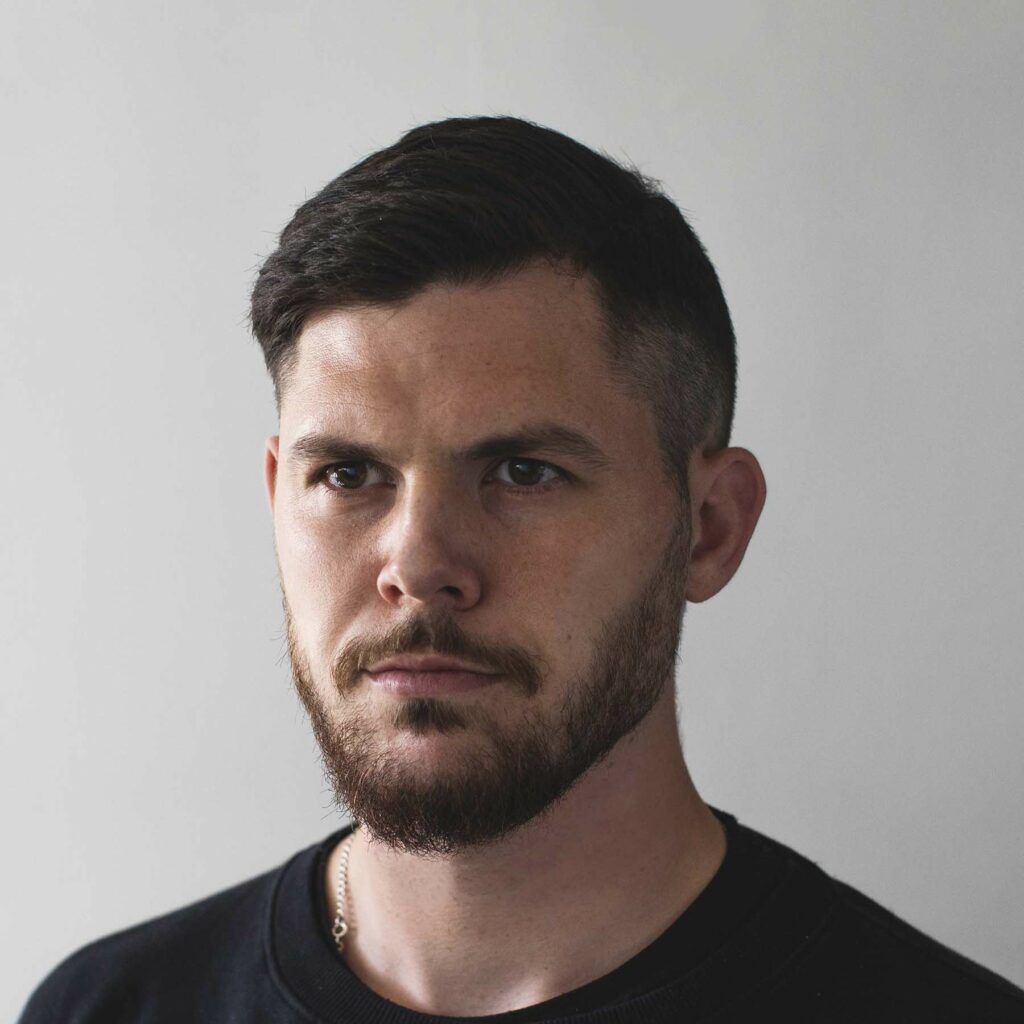
Jonty Herman runs the film production company, Liike, who produce human interest stories and campaigns for important and under-represented causes – head to their website to view more of Jonty’s work and stories, including the documentary he made of the 2023 Pilgrimage of Peace to South Sudan.

